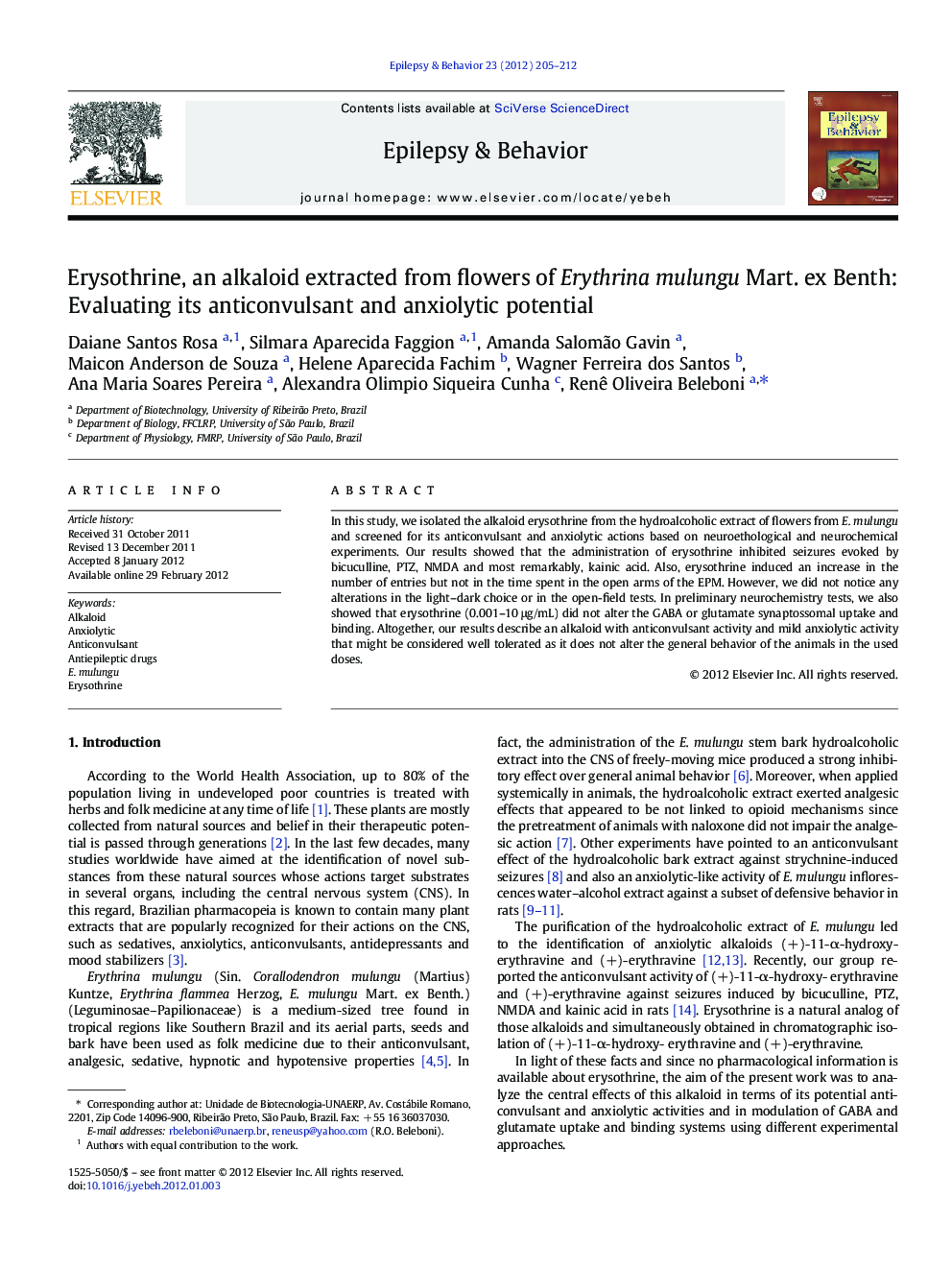| Article ID | Journal | Published Year | Pages | File Type |
|---|---|---|---|---|
| 6014531 | Epilepsy & Behavior | 2012 | 8 Pages |
In this study, we isolated the alkaloid erysothrine from the hydroalcoholic extract of flowers from E. mulungu and screened for its anticonvulsant and anxiolytic actions based on neuroethological and neurochemical experiments. Our results showed that the administration of erysothrine inhibited seizures evoked by bicuculline, PTZ, NMDA and most remarkably, kainic acid. Also, erysothrine induced an increase in the number of entries but not in the time spent in the open arms of the EPM. However, we did not notice any alterations in the light-dark choice or in the open-field tests. In preliminary neurochemistry tests, we also showed that erysothrine (0.001-10 μg/mL) did not alter the GABA or glutamate synaptossomal uptake and binding. Altogether, our results describe an alkaloid with anticonvulsant activity and mild anxiolytic activity that might be considered well tolerated as it does not alter the general behavior of the animals in the used doses.
⺠Erysothrine exhibited anticonvulsant effects and a mild anxiolytic effect. ⺠Erysothrine inhibited seizures induced by GABA antagonists and glutamate agonists. ⺠This work validated the ethnopharmacological potential of E. mulungu.
